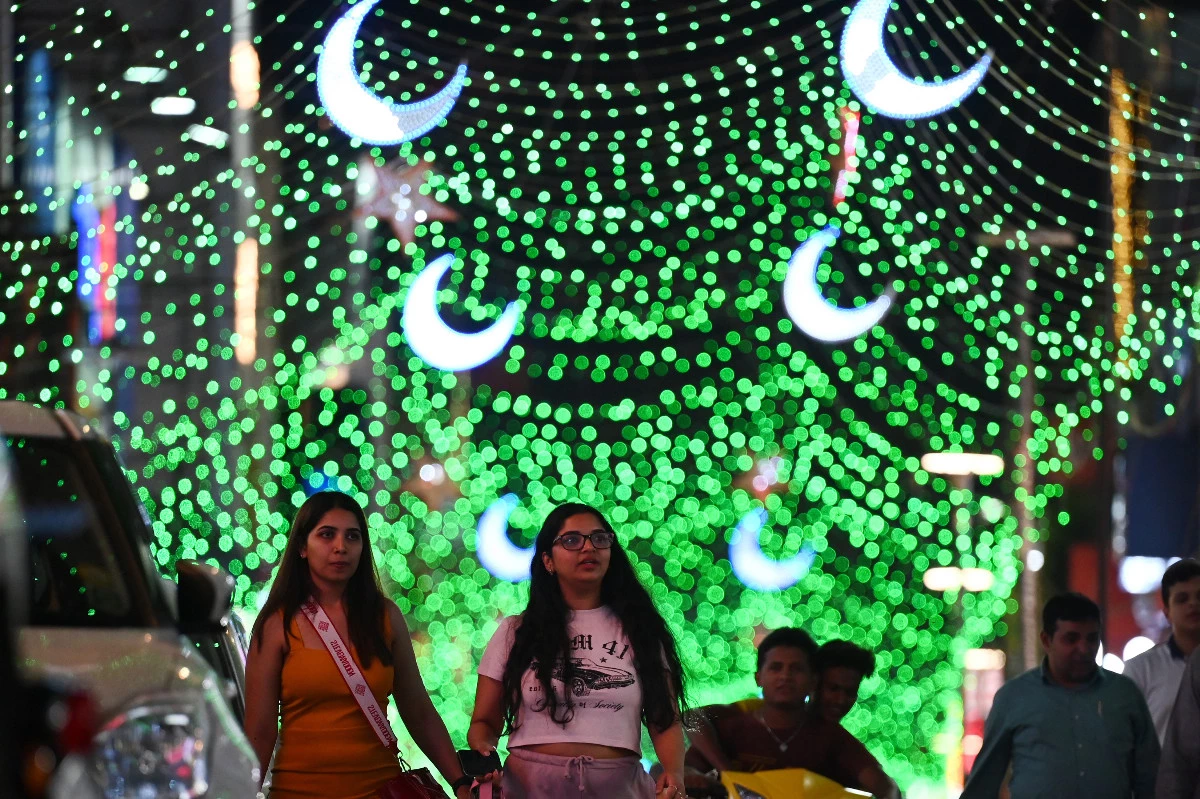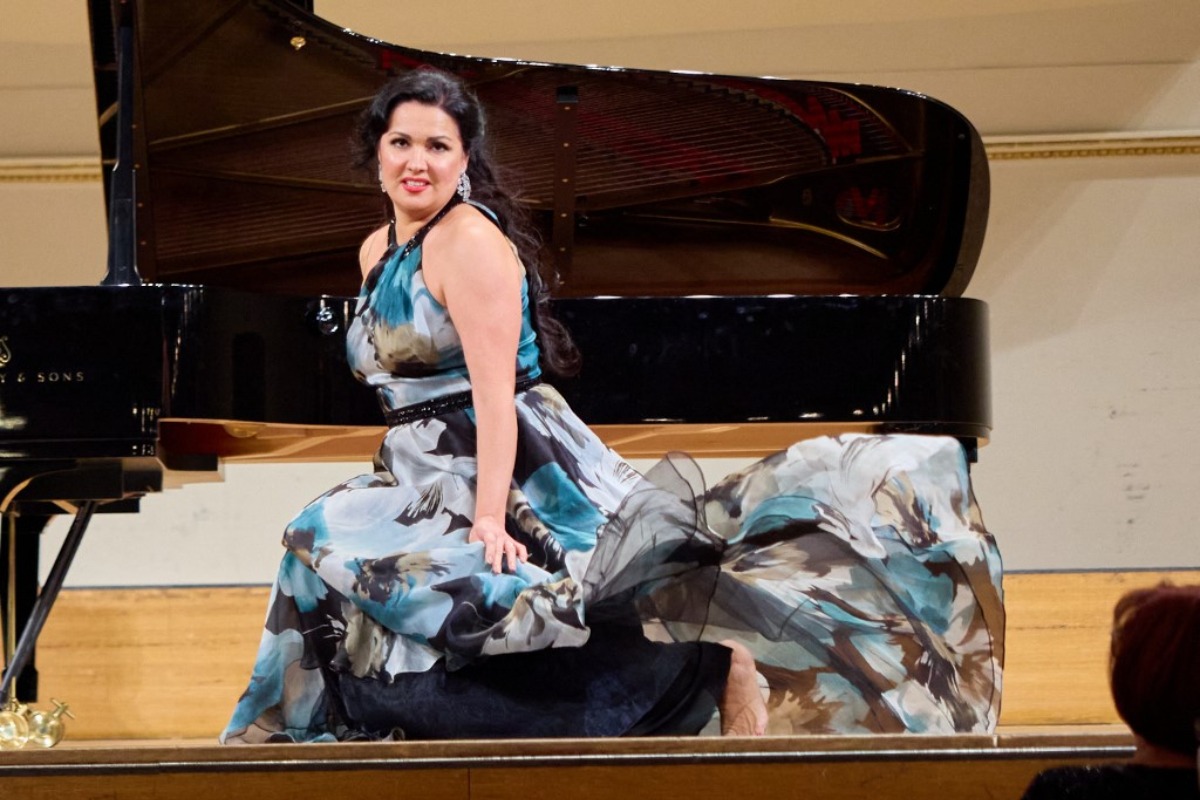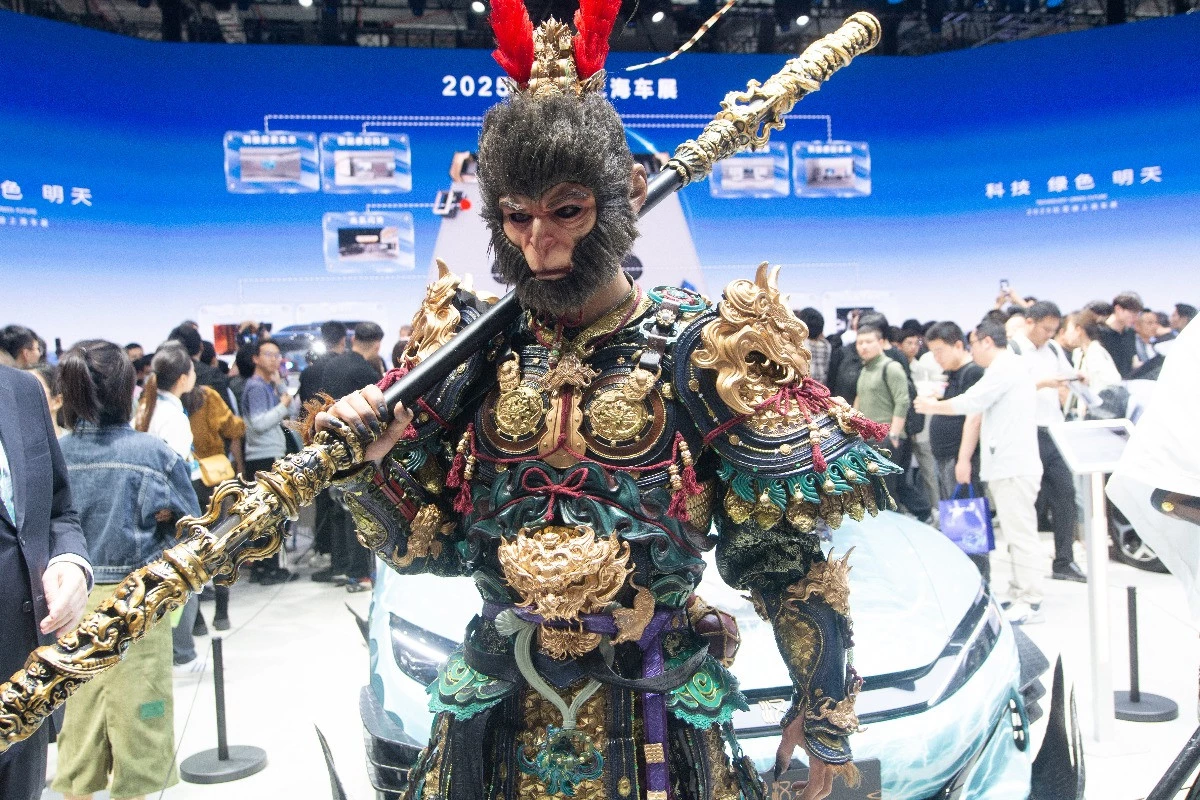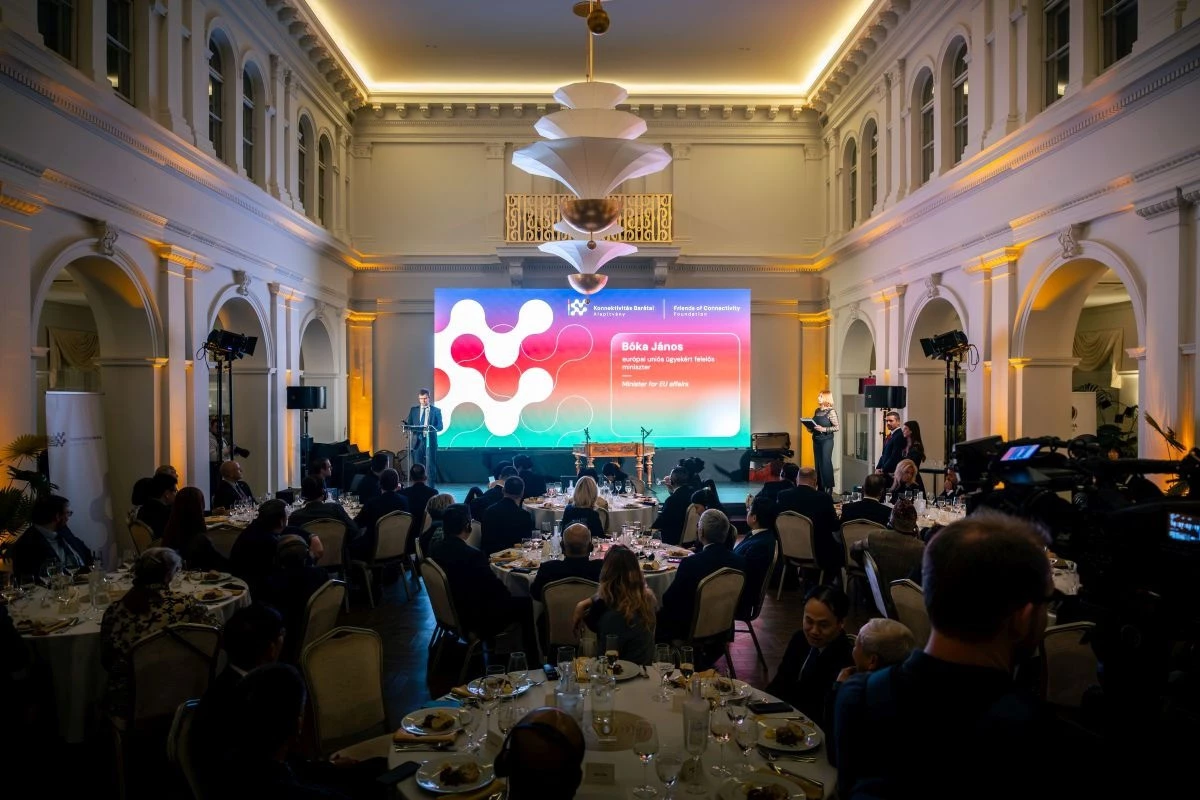

The start of Eid is traditionally based on sightings of the new moon, which vary according to geographic location.
Islam follows a lunar calendar, so Ramadan and Eid cycle through the seasons.
Before Eid al-Fitr, markets teem with shoppers buying clothes, shoes, cookies and sweets.
An “open house” fills the air as friends and families trade visits celebrating the holiday and enjoying traditional delicacies such as ketupat, rice cooked in a palm leaf pouch, and rendang, a meat dish stewed in spices and braised in coconut milk. Older Muslims give money in green packets to children and guests who visit their homes.
Making or buying Eid cookies dusted with powdered sugar is another fixture of marking the holiday in the country.
In Indonesia, the world’s most populous Muslim-majority country, many people embark on an exodus to their hometowns to celebrate the holiday with loved ones. This year, an estimated 193.6 million travelers are expected to crisscross the vast archipelago for Eid in a homecoming tradition known locally as “mudik.”
In Malaysia, Muslims also have a homecoming tradition for Eid. The first day usually begins with a morning prayer in the mosque, seeking forgiveness from family and friends, and visiting loved ones’ graves.
In Egypt, families partake in Eid prayers amid a festive atmosphere. Many visit relatives, friends or neighbors, and some travel to vacation spots. Children, usually wearing new Eid outfits, receive traditional cash gifts known as “eidiya.”
In the United States, where Muslims make up an ethnically and racially diverse minority, many come together for Eid prayers and for festivals featuring fun activities for children and families. These often include such things as face painting and balloon twisting.

Russian soprano Anna Netrebko will perform the role of Lady Macbeth on 6 and 8 June at the Hungarian State Opera.

China’s influence on the world today extends far beyond its economic power and manufacturing capabilities. The country’s cultural soft power has grown remarkably in recent years — particularly in the video game industry.

The Connectivity Awards were presented at the 1st Connectivity Gala Dinner and Awards Ceremony, held on Thursday evening at Haris Park in Budapest and hosted by the Friends of Connectivity Foundation. The highly successful event also served as the opening session of the Asia–Europe Political Forum, held in the Hungarian Parliament under the title Peace and Democracy in Eurasia.